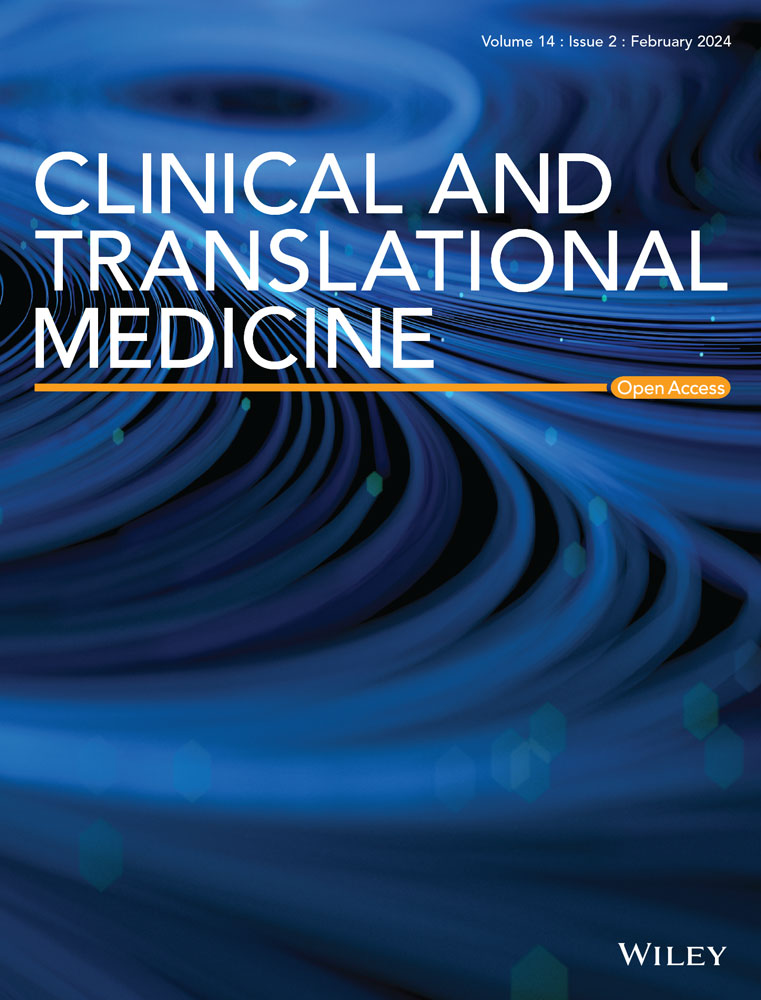USP22 promotes the proliferation and Sorafenib resistance of hepatocellular carcinoma cells via its deubiquitinase activity
Abstract
Background
Hepatocellular carcinoma remains one of the most lethal cancers, characterized by poor prognosis and low life expectancy. Unfortunately, there are very few molecular therapeutic options available for it. Sorafenib is a current standard first-line treatment for advanced hepatocellular carcinoma, however, drug resistance significantly limits its therapeutic efficacy.
Methods
Ubiquitin-specific protease 22 (USP22) expression level and its prognostic significance in hepatocellular carcinoma were analyzed using The Cancer Genome Atlas (TCGA) database. A series of cellular experiments related to cell proliferation and ferroptosis, and mouse tumor-bearing experiments were performed to investigate the role of USP22 in hepatocellular carcinoma cell growth and Sorafenib resistance. Flag affinity purification coupled with mass spectrometry, co-immunoprecipitation, and ubiquitination assays were conducted to identify direct substrates of USP22. Spike-in chromatin-immunoprecipitation (ChIP)-seq, RNA-seq, and ChIP assays were employed to explore the transcriptional substrates of USP22 as an H2BK120ub deubiquitinase.
Results
Analysis of TCGA database reveals that USP22 is highly expressed in hepatocellular carcinoma tissues, which is closely associated with poor patient prognosis. Our data further indicates that USP22 promotes the proliferation of hepatocellular carcinoma cells via deubiquitinating and stabilizing cyclin-dependent kinase 11B (CDK11B). Additionally, USP22 acts as a novel inducer of Sorafenib resistance and suppresses Sorafenib-triggered ferroptosis in hepatocellular carcinoma cells. It reduces the transcription of transferrin receptor (TFRC) by decreasing H2BK120ub occupancy at TFRC transcription start site (TSS) downstream region, thereby inhibiting ferroptosis upon Sorafenib treatment. Finally, animal experiments confirm the role of USP22 in promoting hepatocellular carcinoma cell growth and Sorafenib resistance in vivo. Taken together, this study demonstrates that USP22 promotes hepatocellular carcinoma growth and inhibits Sorafenib-induced ferroptosis by deubiquitinating non-histone substrate CDK11B and histone H2B, respectively.
Conclusions
Our findings suggest USP22 as a promising prognostic biomarker and therapeutic target for hepatocellular carcinoma patients, particularly those with Sorafenib resistance.
Key points
-
USP22 promotes the proliferation of hepatocellular carcinoma cells by deubiquitinating and stabilizing cyclin-dependent kinase CDK11B.
-
USP22 enhances Sorafenib resistance of hepatocellular carcinoma cells by inhibiting ferroptosis through the USP22/H2BK120ub/TFRC axis.


 求助内容:
求助内容: 应助结果提醒方式:
应助结果提醒方式:


